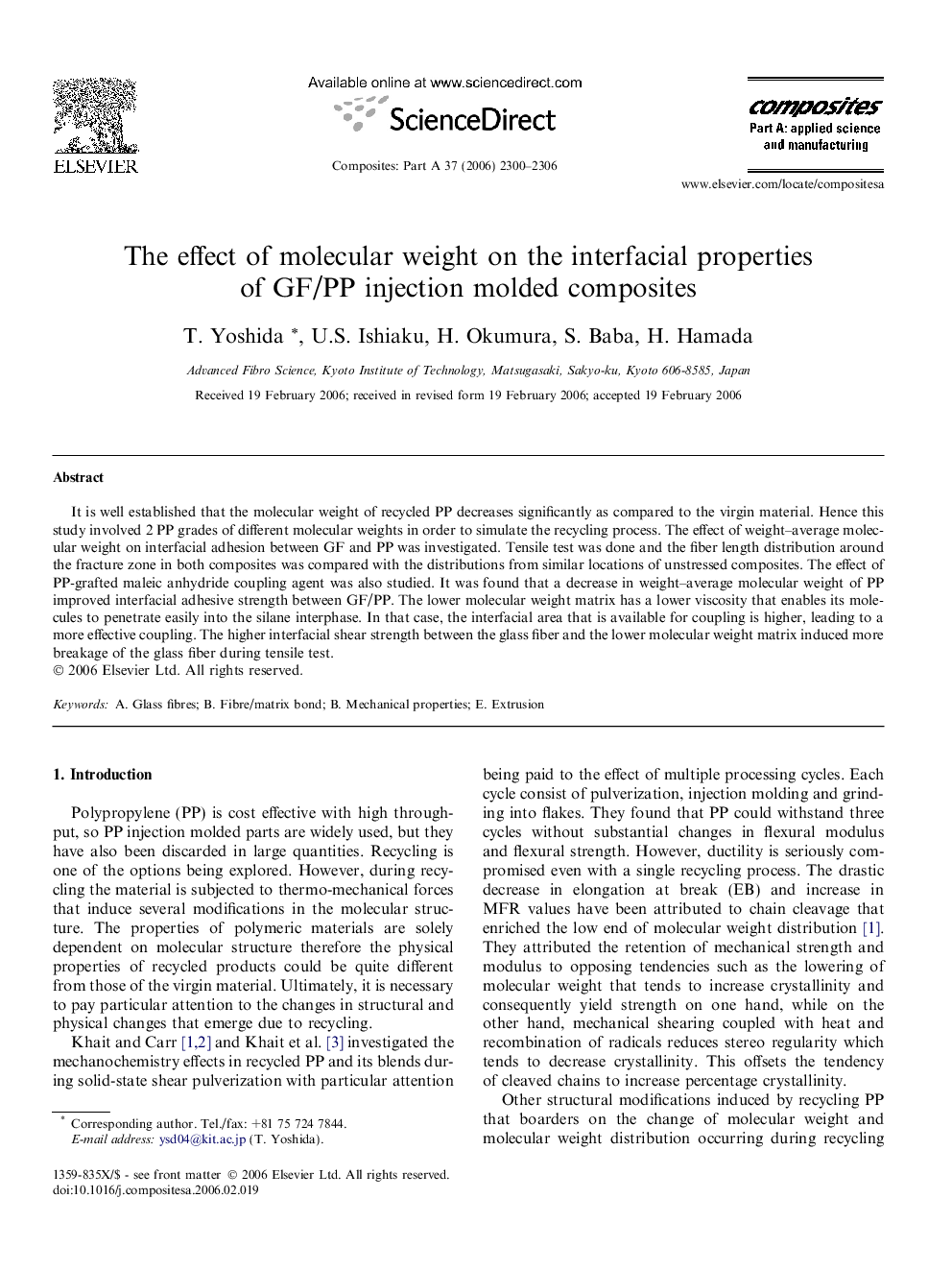| Article ID | Journal | Published Year | Pages | File Type |
|---|---|---|---|---|
| 1468192 | Composites Part A: Applied Science and Manufacturing | 2006 | 7 Pages |
It is well established that the molecular weight of recycled PP decreases significantly as compared to the virgin material. Hence this study involved 2 PP grades of different molecular weights in order to simulate the recycling process. The effect of weight–average molecular weight on interfacial adhesion between GF and PP was investigated. Tensile test was done and the fiber length distribution around the fracture zone in both composites was compared with the distributions from similar locations of unstressed composites. The effect of PP-grafted maleic anhydride coupling agent was also studied. It was found that a decrease in weight–average molecular weight of PP improved interfacial adhesive strength between GF/PP. The lower molecular weight matrix has a lower viscosity that enables its molecules to penetrate easily into the silane interphase. In that case, the interfacial area that is available for coupling is higher, leading to a more effective coupling. The higher interfacial shear strength between the glass fiber and the lower molecular weight matrix induced more breakage of the glass fiber during tensile test.
